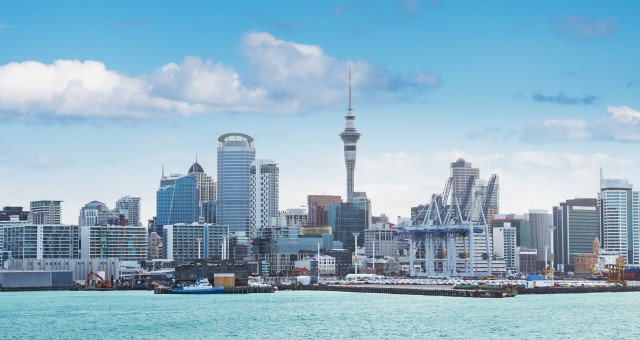Hotels in Queenstown, Christchurch and Rotorua have enjoyed a strong start to the year with increased room rates, driven by an uptick in international visitors, while New Zealand’s main centres of Auckland and Wellington saw a decline.
According to Colliers Hotels’ New Zealand Hotel Market Snapshot for Q1, based on information from Hotel Data New Zealand, revenue per available room (RevPAR) was up 6.5% to NZ$239 in Queenstown for the year ending 31 March. This follows a record average daily rate of NZ$673 that was reached on 31 December 2024.
Christchurch and Rotorua also recorded increased RevPAR numbers of 5% and 3% respectively in Q1.
Over the same period, Auckland and Wellington saw RevPAR figures drop by 10%.
Colliers Director of Hotel Brokerage and Advisory, Derrek Anderson, says there are differing reasons for the rates drop in the North Island’s two largest cities.
“In Auckland there is an increased supply of hotel rooms that has impacted the numbers, while the city would benefit from a greater number of major events,” Anderson said.
“We have seen concerts at Eden Park and the SailGP racing lead to strong demand, indicating the potential that could be unlocked for the city with a comprehensive programme of future events.
“Next year’s opening of the New Zealand International Convention Centre (NZICC) looks promising for the city and projections from the NZICC suggest the facility will attract 33,000 new international visitors to New Zealand, which equates to 101,000 additional visitor nights.
“In Wellington, occupancy and average daily rates are down due to the central Government’s reduction in spending but we do not see this as a long-term shift and expect demand to bounce back in line with the broader New Zealand economy.”
New Zealand’s international visitor numbers sit at 86% of pre-Covid levels, with the Tourism Export Council of New Zealand forecasting a full recovery by March 2027.
Australian and US travellers are returning in large numbers, while Chinese tourism numbers have also increased in the past year.
While transactions in the hotel space have been infrequent, Anderson says it is starting to pick up.
“A key variable influencing hotel asset values is the cost of capital,” he said.
“As the Official Cash Rate continues to drop in New Zealand we expect that will boost transaction numbers, despite the backdrop of geopolitical uncertainty that investors are currently navigating.
“The recent sale of the InterContinental Auckland to an offshore purchaser underscores the long-term prospects of the New Zealand market as we move forward in our economic recovery.”

